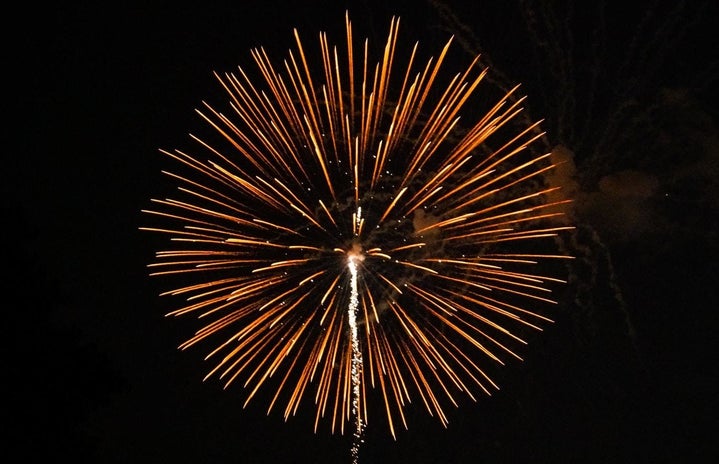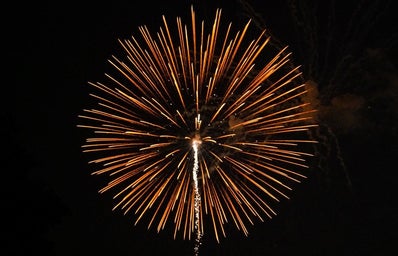In China, Lunar New Year is the most exciting time of year.
The energy in the air is palpable. Families come together to celebrate. They put up decorations and eat sunflower seeds, peanuts, and candy. On the eve of the New Year, it’s so cold that you can see your breath and the air is thick with steam from woks filled with chao cai, bing, and jiaozi. Lanterns, paper dragons and banners line the ceilings and walls. Everything is a sea of red, the colour of luck. Kids are running around collecting red envelopes (filled with $$!), and adults are loud and rowdy, surrounded by the smoke from their cigarettes. When midnight strikes, fireworks are the big event. They are everywhere; so loud, bright and colourful – and every single family puts on their own show. People plug their ears as they look up in wonder. It’s the most lively time of year.
At least, that’s what I think it’s like, based on photos and stories from my mom and dad. For me, Chinese New Year has never been quite that exciting.
I was born and raised in Dartmouth, NS and haven’t been to China since I was five years old. I’ve never experienced a Chinese New Year in China, and my family has never celebrated to this extent. I learned about Chinese New Year celebrations in awe and with longing. While we occasionally did small things, and we had a recital every year in Chinese school, I never felt like it was quite how it was supposed to be.
Growing up multicultural can be the best of both worlds – but sometimes, it feels like you aren’t fully part of either one. My family didn’t really celebrate holidays like Christmas because we’re Chinese, but, we also didn’t really celebrate Chinese New Year, because we’re in Canada. I often felt stuck in the middle between cultures, not really sure where my place was.
Being the only Asian kid in my class throughout elementary school, I wanted to blend in so badly. Chinese New Year was the one time of year I felt special, because it was like I was being celebrated. Even when the attention was on me, however, I didn’t have much to say. One time, my teacher asked me to write a journal entry about what my family did for Chinese New Year. I refused, saying we didn’t have any traditions.
It took me a long time to realize that you don’t have to celebrate a holiday “traditionally” for it to be special. While I don’t have memories of red lanterns, cold nights and loud fireworks, I do have memories that are uniquely mine. I think back fondly of waking up extra early so I could catch some of the CCTV New Year’s Gala streaming on TV with my parents before leaving for school. I think about eating dimsum, or jiaozi, or whatever my family decides to eat that day. I simultaneously look forward to and dread wishing “xin nian kuai le” to relative after relative over WeChat every year. I’ve started making little decorations and looking forward to the holiday more. No matter what we do or don’t do, I think of my parents with a warm heart, who are just a little bit happier on Chinese New Year.
I hope to one day experience the excitement of the New Year in China, with all of my relatives. But now, I look at that possibility with excitement, not disappointment.
All this to say: there is no one “right” way to celebrate a holiday. So, appreciate the traditional, but more importantly, embrace the unconventional – because that is where the magic truly lies.


